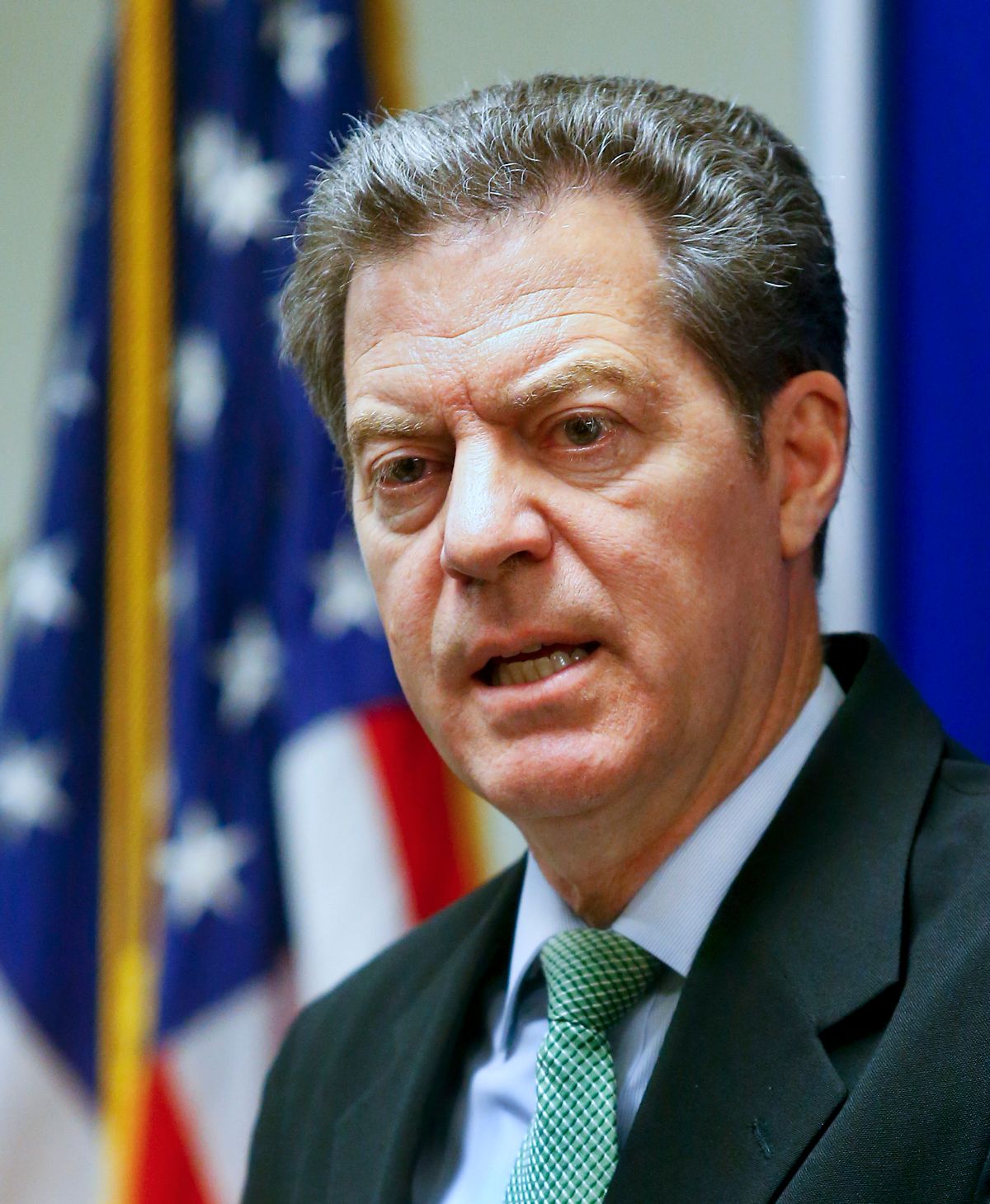After five long years, a coalition of conservatives, moderate Republicans and Democrats finally came together to deliver the major death blow to Gov. Sam Brownback’s failed supply-side economics experiment — by voting for the largest tax increase in state history.
Although the Republican governor of the Sunflower State had earlier vetoed the effort to overturn his failed tax-reform experiment, his action proved impotent after lawmakers immediately voted to override his veto late on Tuesday night.
The Senate voted 27 to 13, and the House followed by agreeing 88 to 31 to override Brownback’s veto, The Kansas City Star reported. Both Republican-led chambers of the Kansas legislature had already voted to end the state’s failed trickle-down economics experiment in February, but the Senate had been unable to muster enough votes to override Brownback’s veto.
This time around, however, supporters of the bill to raise taxes had four votes more than the two-thirds majority needed to override Brownback’s veto — provided by GOP leaders in the legislature. As the Star reported:
A major vote in the House came from the leading Republican in the chamber.
House Speaker Ron Ryckman, an Olathe Republican, resisted tax increases for much of the 2017 session.
But Tuesday night, Ryckman voted to override the governor’s veto. He had not voted for the tax plan when it passed the House Monday night.
Immediately after the House adjourned Ryckman rushed to his office and didn’t answer a question from a reporter about his vote.
After Brownback took office in 2011, he and the Republican-dominated legislature joined forces to cut the state’s already low tax rates even further. Brownback pursued even more aggressive reforms in the following years, completely eliminating the state income tax for owner-operated businesses, known as pass-through entities.
Brownback promised at the time that his “experiment” would act “like a shot of adrenaline into the heart of the Kansas economy.”
Instead, the Kansas economy tanked.
Since the right-wing conservative became governor, Kansas’ growth rate has been below that of the Midwest region and the nation every year. Kansas faces projected budget shortfalls nearing nearly $1 billion through June 2019.
Brownback and his fellow Republicans’ tax reform failed so catastrophically that even other GOP lawmakers from the region have openly mocked it. Missouri Republican state Sen. Ryan Silvey mocked Brownback’s claim that cutting taxes in Kansas would result in businesses from neighboring states rushing in:
I guess not enough money walked to KS under Brownback's plan. ♂️ #moleg https://t.co/ATnDFMn9Qz
— Ryan Silvey (@RyanSilvey) June 7, 2017
But the real joke is that Kansas’ failed tax experiment was crafted and endorsed by the most influential conservatives in the country and closely mirrors President Donald Trump’s tax reform plan. In fact, both plans were designed by the same right-wing economists.
Now as Trump attempts to pass the same failed plan through a Republican-controlled Congress, Republicans in Kansas are finally willing to bite the bullet and pass the largest tax increase in state history; they need to fund a public education system that the state Supreme Court recently ruled is inadequately funded.
“This is not an easy vote,” Republican Rep. Troy Waymaster told the Star, lamenting the end of an era.
“Respect to me does not mean blind agreement,” Republican Senate Vice President Jeff Longbine said to explain his break with Brownback, who is now one of the nation’s least popular governors.
Still, there is little reason to think Republicans in Congress have watched the implosion of Kansas and learned the same lessons.

Shares